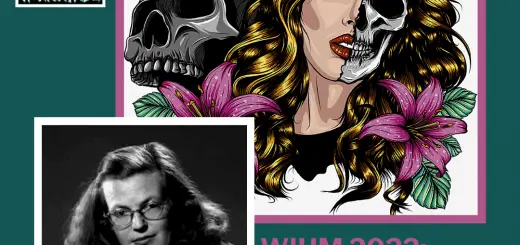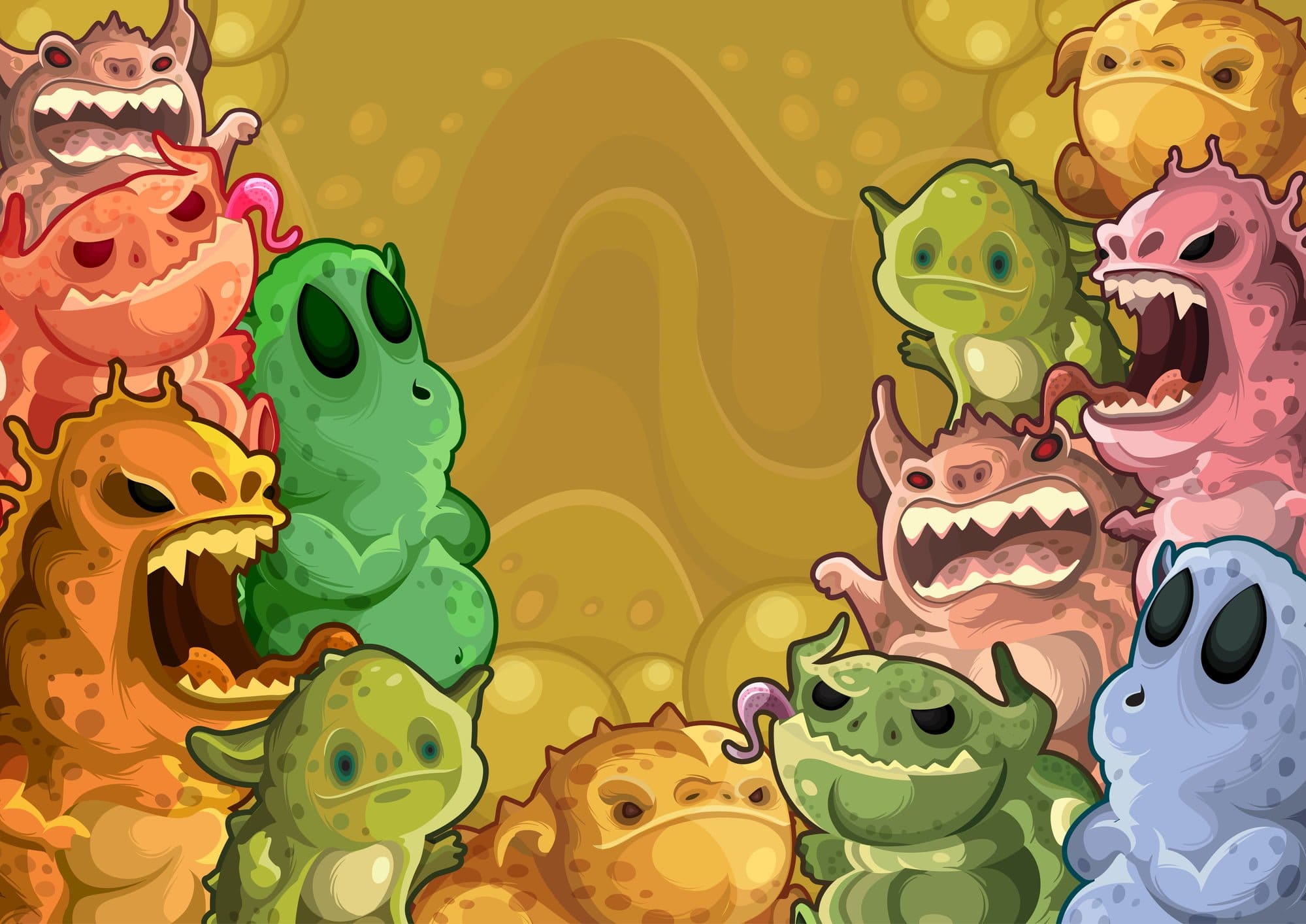The Horror Tree Presents…Claire Fitzpatrick
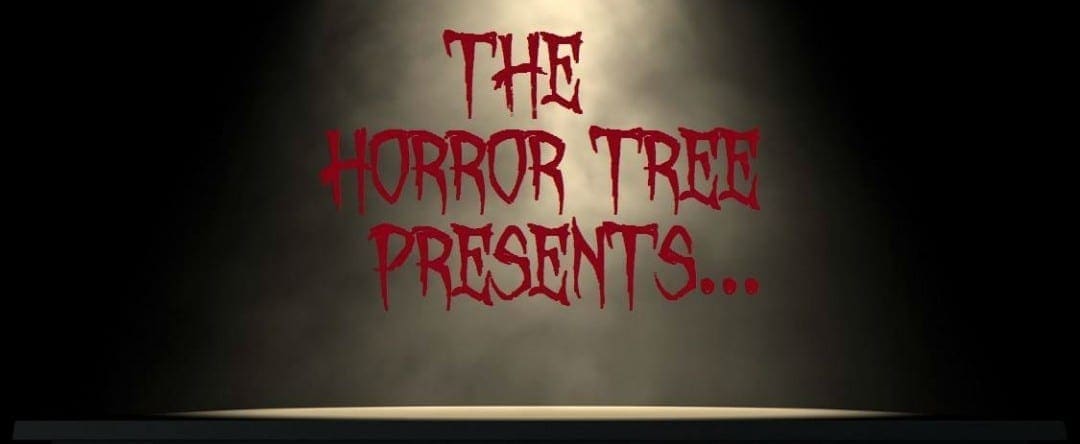
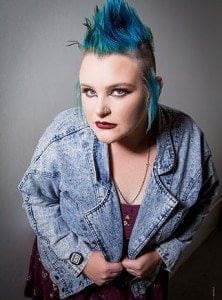 Selene – First, tell us a bit about yourself, and what current projects you have on the go.
Selene – First, tell us a bit about yourself, and what current projects you have on the go.
Claire – Hello! I’m a music/arts journalist and speculative fiction author. I have a bachelor of Government and International Relations from Griffith University, and I’m currently working on my postgrad certificate in Writing, Editing, and Publishing at The University of Queensland. This might seem like blasphemy, but I enjoyed my politics degree a whole lot more than writing and editing!
I’ve been nominated four times for the Aurealis Convenor’s Award for Excellence in non-fiction, but have never won. One day! However, my very juvenile poem ‘Rainbows,’ written when I was 12, was commended in the 2002 Dorothea Mackellar Poetry Competition. So that’s cool!
I have Epilepsy and schizoid personality disorder, which has a significant impact on my life, and why I mostly write body horror. I don’t always feel like a real person, at least, not how a person should be. I find it very hard to communicate with people, and I’m quite reclusive. But I don’t always think of it as a bad thing, as it’s very inspirational for my writing!
I’m currently writing a novella tentatively titled ‘The Eagle and The Witch’ which explores the idea of being able to change your anatomy and, also, your sense of self. My anthology ‘Misanthropy’ will soon be released by Digitalian Publishing, so that’s exciting!
I also watch a lot of children’s television. My daughter, who is five, has opened my eyes to the brilliance of Ben and Holly’s Little Kingdom. I’ve always wanted to write for a children’s TV show. I’m jealous someone thought of the show before me! Nanny Plum has got to be one of the best characters ever written!
Selene – How did you start writing?
Claire – I started writing at a young age, around eight or nine. I used to write stories for my younger sister, and then I wrote two Harry Potter ‘books’ because I couldn’t wait for The Order of The Phoenix to come out. Haha. My first major publication was ‘Madeline,’ included within Midnight Echo 12. However, I had a few short stories published beforehand, most of which flew under the radar, as they weren’t particularly good. Well, not in a professional sense! I was diagnosed with Epilepsy when I was around 12 or 13, which made me feel quite isolated from the world. I also have schizoid personality disorder. While I had a few friends in high school, I didn’t really socialise with them all that much as I’d often felt disconnected from them, so I’d spend hours alone writing stories. Most of them were about pirate adventures, although my first ‘novel’ was about a psychotic megalomaniac who had mutilated his hand. I’m a bit of a weirdo, obviously!
Selene – I’ve managed to read the first few chapters of Only The Dead, and some of your non-fiction work online. Tell us about your first novel.
Claire – ‘Only The Dead,’ I suppose, is a twisted love story of obsession and the horrors of human nature. Set in Australia and Vietnam during 1966 and 1967, the book is about two women, Lydia and Cassie, outsiders both, who develop a co-dependent relationship. Essentially, it is about the very real demons that come back with men and women from the war, and how they interact with those they left behind. I wanted to write about surgical nurses since most books about war are generally from the perspective of men. Two of my favourite tv shows, ‘Band Of Brothers’ and ‘The Pacific’ really get to the core of what it means to suffer so much mental and physical trauma, and how it changes your perception of yourself and the world around you. In a way ‘Only the Dead’ is not about war at all, but the struggles within ourselves and our identities and how we connect with others. Why are we instantly drawn to some people? Why do we instantly abhor others? Who we are on the inside is not always the person we are on the outside. We all have wars within each other, and sometimes those wars rage so hard, and so long we lose a part of ourselves, what makes us human.
Selene – One thing I was surprised to learn from Only The Dead was that Australia was involved in the Vietnam War. Of course, I’m a lazy researcher (and Canadian, and we weren’t involved), so most of what little I know about Vietnam comes from Hollywood. Let’s talk about the role of research in your writing. What’s involved, how important are the details, and what kind of tools do you use?
Claire – My research for the book included going to Vietnam as part of a study tour with Griffith, where I visited a lot of war memorials, including The War Remnants Museum in Ho Chi Ming city. It’s incredibly harrowing and very anti-American. There are lots of pictures of deceased victims, including body parts of children. I also went into the tunnels of Củ Chi (a little scary, since I have claustrophobia), but it was a great way to immerse myself in just one aspect of the war. Of course, my understanding of the war is minute compared to those involved in the conflict, but I do have a good knowledge of conflict and war in general. I also watched a lot of documentaries, read books, journal articles, watched films (biased, but enjoyable nonetheless), and more importantly learned about the role of nurses. I also watched videos of amputations of other surgical procedures, which I feel was a necessary part of understanding how to write an amputation scene. I think really immersing yourself in your writing is incredibly important because it allows you to understand your own ideas more clearly, and what drives you to write the story in the first place.
Selene – Just by looking over your bibliography and website, I see two pretty different themes running through your work. Not to be reductive, but one is body horror, and the other is politics. First, what about body horror inspires you as a writer?
Claire – I like to write about what makes us human in the philosophical and political sense, the function of a human being, hedonism, decadence, and the idea of conflict – seeing the world through Epicurean-coloured glasses or Mill-coloured gladded, either Epicuras’ individual salvation or Mill’s aggregated good of all. How should humans define pleasure and happiness? Is a body horror a reflection not only the mutation of anatomy but how we view ourselves as biological, visceral creatures? ‘The Witch and the Eagle’ explores the idea of being able to change your anatomy and, also, your sense of self. Does becoming part animal means you lose your humanity? And what does it truly mean to be human? In a political sense, it’s all about how people fit into society, especially if they are a minority different in a certain way. This is where my Epilepsy comes in. I often feel I’m an anomaly, a mutation of anatomy, especially when I sustain particularly nasty injuries from seizures. I don’t always feel like a wholly functional human being. ‘Madeline’ was my first foray into body horror, and I wrote it after a particularly nasty seizure. The story is about puberty, and in a way, about my puberty and adolescence.
I also write ghost stories, but I think of them as a deviation from my usual writing. My mum is a firm believer in spirits and hauntings. While I’m not entirely convinced, my paranormal stories sometimes feel like a breath of fresh air, as I don’t feel as emotionally attached to them as my body horror stories, and they’re fun to write.
Selene – And now we come to politics! They say that you should never talk about religion or politics, particularly if you want to keep your friends, and we live in a very complicated time, politically. Why do you write about politics, or work political ideas into your writing?
Claire – Ya, politics! (Does anyone sane say that? Haha) I have a Bachelor of Government and International Relations, I’ve studied at Hanoi University in Vietnam, and once represented Russia in a mock UNSC resolution regarding humanitarian corridors in Syria. Russia won. I’m very competitive! 😉 I mentioned Epicuras and Mill, and how people fit into society, and I suppose, on a deeper level, I’m interested in humans and our relationships to each other. I like to study why we categorise people, what makes us different, and what makes us similar. Why are people racist? Why are people segregated?
The philosopher Thomas Hobbes developed a theory of violence and the state and concluded that before the sovereign state people lived in a state of nature, a war of all against all. The modern sovereign state begun after people made a social contract with each other – because the state became sovereign, no one was above the law, and no one could change the state’s use of violence. We, as humans, give up our right to violence to the state so that the state can use violence against us as a means of preserving life. Cities are a haven for disorder, as we all weren’t meant to live so close to each other.
I work these ideas into my writing through stories of how people interact with one another, how they view their relationship to the world, which is particularly evident in my short story ‘The Eagle,’ the basis of my novella. Even though the Treaty of Westphalia was supposed to end all religious wars, we still categorise people. And as much as I disagree with it, it definitely helps with my writing!
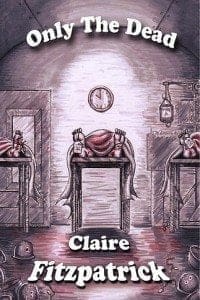 Selene – Only The Dead was set during the Vietnam War era, and the protests of the time provide a backdrop to the story. Robert Reich noted that in our current political climate, he’s seeing protests and political involvement that we haven’t seen since those days. There are definite parallels between that time and today, so why did you choose to write about the Vietnam era?
Selene – Only The Dead was set during the Vietnam War era, and the protests of the time provide a backdrop to the story. Robert Reich noted that in our current political climate, he’s seeing protests and political involvement that we haven’t seen since those days. There are definite parallels between that time and today, so why did you choose to write about the Vietnam era?
Claire – I started researching the Vietnam War (or, ‘Cuộc chiến tranh Mỹ’, the American War, as the Vietnamese call it) after learning about the conflict at Griffith University. I was particularly drawn to this war because I’m interested in the dynamics of power and the P5, the permanent members of the United Nations Security Council (UNSC). The Cold War set a lot of wheels in motion, and neither the Soviet Union nor the United States could risk an all-out war against each other because of the threat of nuclear war. So essentially, the Vietnam War was a Cold War-era proxy war which pitted the communist government of North Vietnam against South Vietnam and its chief ally, the United States. There are a lot of dramatised versions of the war, some which are quite good, but they often don’t explain the reasons behind the war, which I think confuses a lot of people and alters their perception of the events. Also, not a lot of people know about the role of the UNSC.
I think the parallels between the 1960’s and today stem from the idea of the Cold War, and the fear of the ‘other.’ Russia was seen as a rogue state, especially during and after the collapse of the Soviet Union, and it’s now once again viewed in the Cold War light. I suppose our current political climate mirrors many aspects of the Cold War and the idea that we cannot know what rogue states are planning. This generates political uprisings all over the world, especially in light of the continuing so-called ‘War on Terror,’ and the alliances between the P5 states. I don’t want to go too much into my own political views, but I think the Vietnam War was a turning point, and a precursor to the world we live in today. It’s much more important than people think.
Selene – Your bio mentions a lot of books in your house. What do you like to read? What are you reading at the moment?
Claire – I have just over 400 books, a mini-library in my bedroom. I read a lot of everything. On my shelves are authors such as Anne Rice, Clive Barker, Sonya Hartnett, Isobelle Carmody, Jostein Gaarder, Stephen King, John Marsden, HP Lovecraft, Ursula Le Guinn, Jack Kerouac, Kurt Vonnegut, DBC Pierre…I have so much variety I often joke I should make library cards for people who might want to read them. I like stories about people. My favourite book is Black Foxes by Sonya Hartnett, withal-time favourite quote: “Bored, bored, bored……I am so utterly bored that my life could come to an end right here and I would fail to notice any difference.” Tyrone Sully is basically me!
At the moment I’m reading ‘The Book of Lost Things’ by John Connolly. I have ‘Eucalyptus Goth’ by Brian Craddock and ‘The Girl Who Took an Eye For An Eye’ by David Lagercrantz on my bedside table as my to-read list. The original Stieg Larsson Millennium series is amazing!
Selene – Who or what are your biggest influences, as a writer, and where do you get your ideas?
Claire – Tough question! While my health issues are a definite influence, Franz Kafka is one of my biggest influences as a writer, especially regarding body horror. Franz Kafka, like me, had schizoid personality disorder, so I feel a sort of kinship with me. Reading his novella, ‘The Metamorphosis,’ motivated to write body horror. Even though I had always been fascinated by body horror, I didn’t start writing it myself until after reading his book.
Clive Barker and Sonya Hartnett are also my biggest influences. While Clive Barker is an obvious reflection of my interest in body horror, Sonya Hartnett writes about dysfunctional people, and how they do or don’t fit into society, which I mentioned is mostly what I write about. Her work is absolutely brilliant.
I suppose I get my ideas from my struggles with epilepsy, but also by observing the world around me. I like to observe people, take notes about what interests me about them, and how they interact with others.
Selene – I enjoyed the article in The Australia Times, about Vietnam. Do you get to travel often? How does travelling shape your writing?
Claire – I don’t travel all the time (although I’d like to!). The only other place I’ve been to outside Australia is New Caledonia and Vietnam, although I stopped off at Taiwan for a connecting flight. Does that count? Haha. I suppose money is the issue with regards to travelling. I’d like to travel around Australia with my daughter one day, and also travel by myself when she’s older. But I do travel interstate quite often for speculative fiction conventions and to see one of my friends. I’ve almost got capital city bingo, with Perth and Darwin left to cross off the list!
I have a world map in my office which I look at every day. I used to be a board member of Uganda For Her, so I’d take conference calls from Uganda. I left the organisation before I was able to travel to Uganda, but I’d like to go one day.
I think travel is so essential when writing. It’s undoubtedly influenced by the idea of the world and other cultures, and I think it’s so important for people to leave their country, for so often because become unintentionally closed-minded regarding the rest of the world. I’d like to travel through Europe, Russia, Iceland, and South America. I like to write about nature, which I’ve used quite heavily in ‘The Eagle and The Witch.’ But I think South America is on the top of my list. I want to traverse through the Amazon rainforest. I feel peace within nature, as though time has stopped, and everything doesn’t matter, if only for a moment.
Selene – And, further to the question of travel, let’s talk about the importance of place and setting to your writing. Where is your work set, and what are your favourite places to write about?
Claire – For me, there is no story without place and setting. At least, no major piece of work, like a novella or novel. The most important part, for me, is grounding the reader in an imagined world. Even if the world already exists, it will always be changed by your own perception of it within your writing. As I mentioned, ‘Only The Dead’ is set in Australia and Vietnam, though my science-fiction story ‘Andromeda’ is set on Mars, my novella ‘Of Man And Woman’ set in Kalgoorlie-Boulder, my short ‘The Beach’ is set on a deserted island, my soon to be published short thriller story ‘Deep Sea Fishing’ is set on a fishing trawler. I tend to isolate my characters, and make their world smaller than ours, to create a sense of claustrophobia and fear. I think it’s vital to set the scene first, to establish the setting first, so the reader can jump right into the story and feel connected to the world straight away.
Selene – Your bio also mentions that you’re a parent. How do you balance your work and other responsibilities?
Claire – As a music and arts journalist, I interview a lot of people via video conferences or over the phone, and most people I interview live overseas. I review shows, so spend time at theatres and festivals, which helps with my isolation. Festivals are also good because I can take my daughter with her. Isobelle (named after Isobelle Carmody) spends half the week with me and half the week with her father, so I do have time to work on things, which means I devote all my time to her when I can. I organise my work schedule around her, as she comes first. Although, I have had to conduct a few phone interviews while she’s in the house, and it’s tough to slip away without her shouting ‘mum! Who’s on the phone?? I want to talk to them!! Let me say hello!’ It often makes the interview more interesting, as I talk to a lot of musicians, and then the topic changes from their new album to their child’s favourite TV show. I spent six years at university studying two bachelor degrees, which was hard because I had just started my course when she was born. As she grew older, it was challenging to work around her, but I’m glad I have my family to help. Not being allowed to drive is also hard, so we take buses and trains everywhere, which my daughter considers an adventure, although I consider a nightmare!
Selene – You’re involved with Women In Horror, which happens every February. I always kick myself for asking this, because I don’t ask this question of male writers (!) but how important is a showcase such as WIH?
Claire – Traditionally women are victims in horror films, by crazed killers, haunted houses, or monsters. They’re often cast in stereotypic damsel-in-distress roles or are a mother to a possessed child. But I do think there are several films where women take the lead and are just as strong and dangerous as their male counterparts. A lot of Clive Barker novels have strong female characters, and ‘Hellraiser,’ the adaptation of his novella ‘The Hellbound Heart,’ features Julia, who is perhaps just as monstrous as the Cenobites. I hate the idea of the ‘final girl,’ where one woman manages to survive a terrible ordeal out of sheer luck. But with ‘The Hellbound Heart,’ Kirsty Cotton is a ‘final girl’ who manages to send the Cenobites back to their alternate dimension. I think because woman are physically weaker than men there’s this idea that they’re somehow mentally weaker, but I don’t think that’s the case. For me, everyone is the same when faced with unspeakable horrors, regardless of your gender. So any film or novel that includes strong female characters is so important not just for the horror industry, but also for society.
Selene – Who are your favourite women authors (horror or otherwise), and why do you think women in horror don’t get more recognition?
Claire – Anne Rice and Clive Barker are my top two favourite authors, but I love Anne Rice because The Vampire Chronicles were so important to me when I read them. At the time I was in an abusive relationship, and the only kind thing my boyfriend ever did for me was buy me Anne Rice books. Her books are eccentric, with no Anne Rice fan the same. “Good horror fiction as I see it is always about us, about the human condition,” – Anne Rice, February 2017. And that’s precisely why I love The Vampire Chronicles, and adore The Mayfair Witches books. They’re about people, their relationship to one another, how they interact within society. It’s such a big part of my own life, and indeed her books amazingly impacted my life. I found solace in her characters, even at the darkest of times, and it helped me crawl out of a relationship which almost swallowed me whole.
We were talking about female horror writers at Conflux this year, and I mentioned we need female horror writers because ‘strong female characters’ are still a topic of discussion. Where are the ‘strong male characters’ panels at conventions? Women still face discrimination, surprisingly with book covers. Kim Wilkins, who taught one of my courses at UQ, mentioned books of hers with helpless-looking women on her covers even though her female characters were heroines. It’s utterly ridiculous. Perhaps it’s because of the hunter/gatherer idea, that women aren’t built for quests, and should leave all the sword-fighting to the men. I don’t know. We talk about these things in my house a lot, and we all seem to agree and disagree on points. But I respect women who aren’t necessarily maternal. I’m not, and I have a kid. I didn’t even want children, and she was a happy surprise! But I’m glad I have my daughter, for children make you see the world in an entirely different light, especially as a woman.
Selene – If you weren’t writing, what would you be doing?
Claire – Golly gosh, I can’t imagine not being a writer (double negative! Haha). Umm….if I didn’t have epilepsy I’d likely be in the army or air force, as I wanted to be a pilot, and I think having epilepsy really strengthened my idea of myself as a writer. I’d love to be a surgeon or work in medicine in some field. Probably neuroscience, which is hilariously ironic. I also wanted to be a mechanic, which is also ironic. I think I just like how things are put together, and how to pull them apart. Especially bodies. I’d also probably be a nomad and live overseas somewhere. But alas, I’ve not yet been elected queen of the world. One day.
Selene – What advice would you give someone who wants to write, especially horror?
Claire – Lean on your own experiences. Use your own life for inspiration. We often don’t think of ourselves as incredibly interesting creatures, but we are. Humans are the most interesting creatures of all. Horror is not all about slasher films and buckets full of blood (although I LOVE buckets full of blood), but our innate desires, our fears, the limitations of our human bodies. Look to yourself for inspiration. Look to those around you, even if you only see them on the bus once a week and don’t know their names. Fear and love are polar opposites, but find a way to tie them together unusually or disturbingly. Then you’ll find the horror within.
Selene – What’s next for you, and do you have anything else you’d like to talk about?
Claire – Let’s talk about sex, baby! I’m looking forward to the publication of ‘Misanthropy,’ and also my short story ‘The Eagle,’ the June 2018 feature story for Disturbed Digest By Alban Lake publishing. I’ve never had a feature story before (although I write cover stories for work), so I’m super keen for the issue to come out. I’m also hoping I’ll finish my novella, but considering how long it took for me to write ‘Only the Dead,’ one can never know! I’ve only written 19,000 words out of my planned 25,000-40,000, so who knows? The story is taking itself in a different direction than I planned, so there’s no telling what I’ll end up with. Hopefully, it’s readable! I’m also hoping to get a full-time job. Employers seem to ignore applicants who aren’t allowed to get a licence, so I’m planning on stealing a monster truck and bulldozing companies who won’t hire me even though I’m overqualified. So, depending on what happens, I might be in jail! Now that’s true women in horror!
Selene – thank you so much for your time, Claire!
If you would like to find out more about Claire and her work, you can find her via the below links:
Website: www.clairefitzpatrick.net
Twitter: @CJFitzpatrick91
Facebook: www.facebook.com/ClaireJean1239
- About the Author
- Latest Posts
Selene MacLeod is a night operator and sometime writing hobbyist. She holds a BA in Communications from Wilfrid Laurier University and resides in Kitchener, Ontario. Her work has appeared in several horror and crime fiction anthologies, most recently Shotgun Honey, Drag Noir (Fox Spirit Books); and the upcoming Freakshow: Freakishly Fascinating Tales of Mystery and Suspense (Copper Pen Press), and Tragedy Queens (Clash Media).She’s most excited about editing a charity anthology for Nocturnicorn Books called Anthem: A Tribute to Leonard Cohen, due out late 2017.

